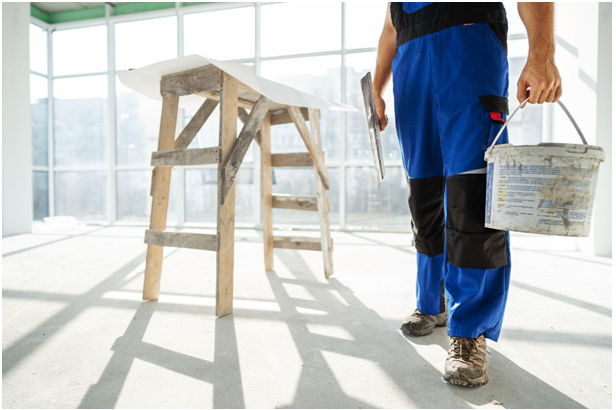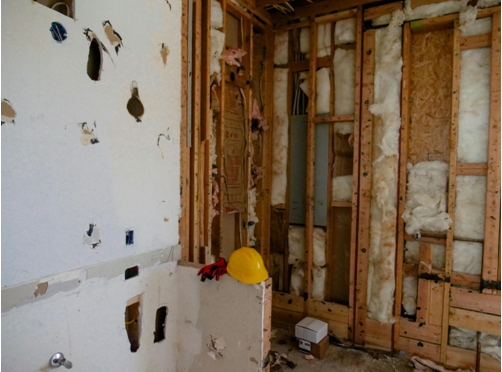By Rick Brown
•
February 2, 2026
Midlife movers in Orlando and Clermont, especially Orlando home buyers weighing a new place or sellers deciding whether to cash out, often feel pulled between lifestyle redefinition and the reality of housing decisions that affect daily routines, budgets, and family dynamics. The core tension is simple: the desire for a fresh chapter can be strong, while uncertainty about home value, neighborhood fit, and timing makes every choice feel heavier. When a move overlaps with a career transition, the pressure rises because work, identity, and location start to feel tied together. Handled with clarity, one midlife move can open the door to personal growth. Understanding a Midlife Move as a Reset Plan A midlife move is not about running away. It is a structured reset that helps you name what you want next, then line up your home and work choices to match. When you treat “starting over” like a plan, it becomes motivating instead of scary. This matters because housing decisions shape your daily energy, commute, and expenses. Clear personal goals also make career reinvention feel realistic in a changing job market where 39% of workers’ skills may be transformed or become outdated between 2025 and 2030. Picture a seller who cashes out of a high-maintenance home and chooses a simpler place to live. With lower overhead and a routine that fits, they can commit to a certification, a new role, or a small business. With your reset plan clear, neighborhood choices can support affordability, amenities, schools, and long-term value. Choose a Home and Neighborhood That Fit Your Next Chapter If your move is part of a midlife “reset plan,” your home choice needs to support the life you’re building and the work you’re stepping into. Use these practical checks to narrow neighborhoods and homes that fit your budget, energy, and long-term goals. Set your comfort budget before you fall in love with a listing: Start by running a quick estimate of what you’re willing to pay each month (mortgage, taxes, insurance, HOA, and utilities), then back into a realistic price range. A simple home affordability calculator can give you a starting point in minutes, and you can tighten the numbers once you talk to a lender. This protects your reset plan; career pivots often come with income changes, so leave breathing room for training, networking, or a temporary pay dip. Pick your “non-negotiables” for daily life (and cap them at three): Write down the three lifestyle needs that will actually change your week, examples: a 15-minute commute to a new employer, a walkable coffee shop for remote-work mornings, or quick access to trails for stress management. Then add two “nice-to-haves” you can compromise on, like a pool or a bigger yard. This keeps neighborhood selection focused and stops you from overpaying for features you won’t use. Do a two-times test of community amenities: Visit your top areas twice, once on a weekday evening and once on a weekend morning. Check parking, noise, lighting, and how comfortable you feel walking from your car to the front door. Bring a short list of prompts and literally ask questions like what the community vibe is, where you’d work out, and what errands feel like, because those small frictions add up fast. Treat school districts as a resale factor, even if you don’t have kids at home: Local school districts can influence demand, which can matter when you sell later or if you may rent the home out. Ask your agent to show you recent sales activity for the same school zones so you can compare how quickly homes move. If you’re downsizing, this can be one of the easiest ways to protect future flexibility without buying more house than you need. Use property value trends to choose stability vs. upside: In the Orlando real estate market, some neighborhoods behave like “steady and predictable” while others are more “growth and change.” Ask for a simple snapshot: median sale prices over the last 12–24 months, days on market, and how often homes sell with price reductions. If you’re mid-career switching, stability can lower stress; if you’re rebuilding wealth after a divorce or relocation, upside might matter more, just budget for the bumps. Run a “career-change commute” scenario, not just a current commute: If you might shift industries, test routes to two or three likely job hubs, not only your current office. Map drive times at 8 a.m. and 5 p.m., and note where tolls would become a monthly cost. The right neighborhood supports the version of you you’re planning, not only the one you’ve been. When your home affordability, amenities, school zones, and value trends line up with your reset goals, decisions get calmer and clearer. These checkpoints also make it easier to weigh buy-versus-sell timing, financing options, and other first-timer questions with confidence. Midlife Move Q&A: Calmer Choices, Clearer Steps When decisions feel big, simple answers help. Q: How can relocating in midlife help me reduce stress and gain a fresh perspective on my personal goals? A: A move can create a clean break from routines that keep you on autopilot, giving you room to reset priorities. Reframe it as a values check: what do you want more of each week, and what are you done tolerating? It may help to remember a new study reports mental ill-being tends to decline with age, so this can be a growth season, not a crisis. Q: What are the most important real estate factors to consider when choosing a new neighborhood that supports a lifestyle change? A: Focus on daily-life ease: commute options, noise level, errands, and places you will actually go when you need to decompress. Ask for recent sale-to-list ratios and average days on market so you can predict how fast you will need to act. Prioritize safety, maintenance expectations, and resale flexibility to keep uncertainty low. Q: How do I avoid feeling overwhelmed during the home-buying process in a competitive market like Orlando? A: Break the process into three decisions: financing comfort range, must-haves, and a short list of areas. Keep a one-page checklist for each showing costs, trade-offs, and your stress level after touring. Use market context such as median home sale prices staying elevated while growth slows to stay realistic, not reactive. Q: What steps can I take to ensure my new home aligns with my desire to simplify and redefine my everyday routine? A: Choose fewer rooms to manage and more functions, like a dedicated work nook and easy storage. Before offering, map a typical week in the home: where you will exercise, cook, work, and unplug. If the layout forces extra steps and clutter, it will not feel like a reset. Q: If I’m feeling stuck or uncertain about my next steps, how can I identify and overcome hidden barriers that might be holding me back? A: Start by naming the fear in plain language, like cash flow, timing, or confidence about a career shift, then verify it with data. Interview two people in your target role, price out training, and run a conservative budget scenario so you are choosing facts over assumptions, and take a look at options that can help you map out next steps. If stress spikes, set a two-week micro-goal such as meeting a lender, touring one area, or updating your resume to restore momentum. Midlife Move Timeline Checklist to Stay Organized To keep it simple: This quick checklist keeps Orlando buyers and sellers focused on what matters most: clear timing, clean choices, and fewer last-minute surprises. Use it to connect listings, selling prep, and career planning into one calm, doable plan. ✔Confirm your move window and two non-negotiable lifestyle priorities ✔ Review monthly numbers: mortgage, HOA, insurance, utilities, and commuting costs ✔ Compare neighborhoods by daily convenience, noise level, and maintenance workload ✔ Tour listings with a one-page scorecard: layout, light, storage, work space ✔ Prepare your current home with a pre-list repair and declutter punch list ✔ Track local market pace weekly: new listings, price changes, and days active ✔ Set a career transition plan: networking targets, interview dates, and start timeline Check these off, and your next step will feel lighter. Choose a Confident Midlife Move in Orlando and Clermont A midlife move can feel like a lot at once: home decisions, career questions, and the fear of starting over when life already feels full. The steadier path is embracing change with a clear mindset, trusting the plan, and leaning on personal resilience instead of trying to control every detail. When that approach leads, a midlife opportunity becomes a confident transition with fresh start benefits that show up in daily energy, work focus, and a sense of belonging. A fresh start isn’t about being fearless; it’s about being ready. Choose one next step today by scheduling a single conversation to clarify the timeline and what matters most. That small commitment creates motivational support and the steady foundation that makes resilience feel real.
























